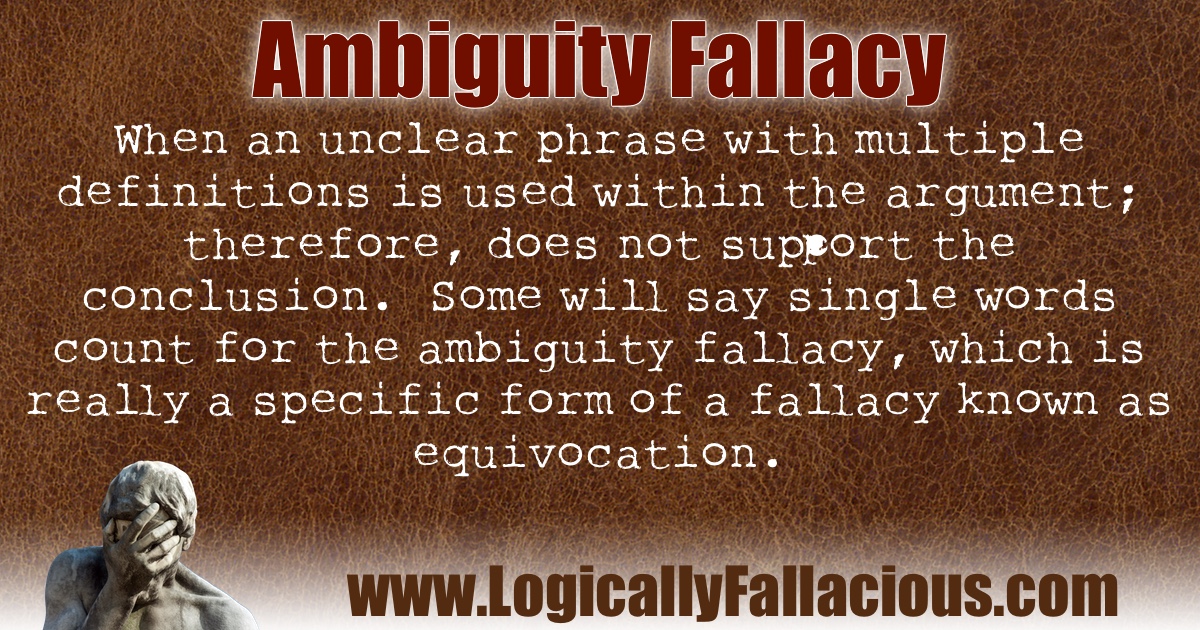(also known as: ambiguous assertion, amphiboly, amphibology, semantical ambiguity, vagueness)
Description: When an unclear phrase with multiple definitions is used within the argument; therefore, does not support the conclusion. Some will say single words count for the ambiguity fallacy, which is really a specific form of a fallacy known as equivocation.
Logical Form:
Claim X is made.
Y is concluded based on an ambiguous understanding of X.
Example #1:
It is said that we have a good understanding of our universe. Therefore, we know exactly how it began and exactly when.
Explanation: The ambiguity here is what exactly “good understanding” means. The conclusion assumes a much better understanding than is suggested in the premise; therefore, we have the ambiguity fallacy.
Example #2:
All living beings come from other living beings. Therefore, the first forms of life must have come from a living being. That living being is God.
Explanation: This argument is guilty of two cases of ambiguity. First, the first use of the phrase, “come from”, refers to reproduction, whereas the second use refers to origin. The fact that we know quite a bit about reproduction is irrelevant when considering origin. Second, the first use of, “living being”, refers to an empirically verifiable, biological, living organism. The second use of, “living being”, refers to a belief in an immaterial god. As you can see, when a term such as, “living being”, describes a Dodo bird as well as the all-powerful master of the universe, it has very little meaning and certainly is not specific enough to draw logical or reasonable conclusions.
Example #3:
Bernice: Do you support Black Lives Matter?
Mildred: Of course, I do!
Bernice: Then you should support me looting that store.
Mildred: Wait... what?
Explanation: “Black Lives Matter” is a political ideology that has evolved from a simple declaration. Like all ideologies, it has many branches ranging from moderate to extreme. Bernice clearly has a different concept of Black Lives Matter than Mildred does. An argument can be had over who is perverting the ideology (we have seen this among different Christians for millennia), but the point remains that what is meant by “supporting Black Lives Matter” has become unclear.
Exception: Ambiguous phrases are extremely common in the English language and are a necessary part of informal logic and reasoning. As long as these ambiguous phrases mean the same thing in all uses of phrases in the argument, this fallacy is not committed.
Tip: Don’t be afraid to ask for clarification, especially if the alternative is to assume your interlocutor is being unreasonable or deceptive.

References:
Jevons, W. S. (1872). Elementary lessons in logic: deductive and inductive : with copious questions and examples, and a vocabulary of logical terms. Macmillan.